Digital nomad - the money question
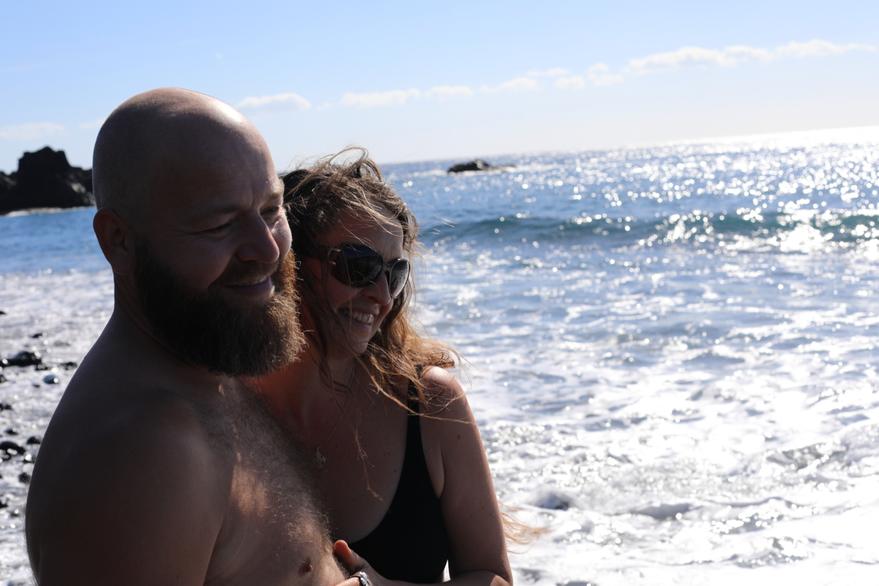
How did we make it happen? This is the all-time most asked question, we get. Read on to get insight into our experiences around the money question.
If you only want the short version, it goes like this: We decided to change our income stream to a location-independent one and worked for it until this part of our income was large enough to live off. At the same time, we saved sufficient money to do a bus conversion, as this was what we wanted. Then we did it. Simple as that.
If you want the long version. Read on.
You see, our relation to money is a journey. Like every other phenomenon in this life, we, as humans, have a relation to it. I am a psychologist, and I find this extremely interesting. Not just our relationship to money, but our relation to …. well, everything, everyone, everywhere. When we work with relations, we can effectively change our lives, and this is such huge freedom and a fantastic adventure.
Our relations to all phenomena in life are interconnected, so nothing is irrelevant; when you work with one thing, you work with the whole system. Like an enormous balancing act: Move one part, and everything changes. Sometimes, you feel it, and sometimes it seems almost nothing happened.
How your relationship with money is constructed, to begin with
As we grow up, we learn about money, and at the same time, we learn mathematics. When we become adults, we learn to earn money, pay taxes, and spend money. For many people, this is the whole story. You might add a budget and a mortgage and some savings, but that's basically it.
But there is so much more to this story, and all of it is much more interesting.
You see, the beliefs about money will guide your experience, and, therefore, the reality of money. You might learn as a child, money is bad, maybe due to religion or some experience your parents had, where money (or the absence of it) ruined someone's life – then you will grow up not liking money, hate it a bit when you have them, feel they are dirty, and maybe you feel guilty if you are happy you earn a lot of money.
If you learn, money can never be talked about; this will guide your adult life, and you might never learn anything about money.
If you learn, that money is hard to earn, this will become your reality until you choose to change it.
You also learn, growing up, how to make money. Many people, including your parents, will teach you how money flows into your life, and until you make conscious choices as to work with these beliefs, they will be real to you.
I find this super interesting. Reality is constructed from our beliefs, even in our bank accounts.
Now, some of you might hate what I am saying, thinking: "I have only 10 euros in my bank account, and I have to feed my children the rest of the week; what kind of choices do I really have?!"
And I assure you: Many.
And that is both on the practical level of managing with 10 euros and on the more critical level of thinking and feeling.
The inner work is the important work
Even if it seems my family is a wealthy Western family, living life in abundance (and we are), I can assure you we have been there and know this is not easy. But it is much easier than you think, and it is totally doable for everyone. Inner work is inner work, and it IS work; you have to do it, work with it, and don't give up.
If you do it, your life with money will change. Fix your thoughts, and your problems will fix themselves.
In our story, the relation to money work is this inner work we keep doing. I cannot say we have found perfection yet, but I can share some of our milestones and choices. And as the sun is rising, I will give you bullets:
- Money is energy or the abstract of energy.
- Money is a representation of value.
- Money is, as long as you spend time earning it, life lived.
- Dept is selling your future freedom, don't do that, if you can avoid it.
- You can avoid it.
- Reflect on your money flow.
- Fix your thoughts, and your problems will fix themselves.
On money flow and life balance
As money is energy passing through your life, where you put it, it WILL affect you: Where did the money come from, and where does it go?
Your choices with money have a big effect on the world. You choose who to support when you use money. Do you support the local farmer or the big international supermarket? This is a choice. And it is a choice of energy - of your life - What do you want to support with the time, energy, and attention you used to earn money? And what do you choose to support as to where you spend it?
You are a channel of energy, and the inflow and outflow of money are energy flowing directly through you. It is, therefore of great importance, where the money comes from, how you (mentally) receive it, how you hold it as long as you have it, and where you send it.
About earning money
We learn we have to work (hard) to earn money; we learn this when we are young. Most people learn this both at home and school. Children see their parents leaving for work (important) all weekdays, and they learn they have to go to school so they can get an education, so they can get a job. This is the law of the universe, it seems.
But is it true?
Our first objection is: Does it have to be hard? We have chosen, and we will only work if it is either meaningful, or fun, or interesting, or challenging, or all of the above. As such, we would, in most cases, do the work even if it did not give us any income. This is one point where you can choose to change your perspective, and everything will change. Maybe not overnight, but eventually. Some of the work we do is boring or stressful or both, and some of the work we do is fun and makes very little or no money.
To change from "hard work" to fun/interesting/important/meaningful can be done all in the mind. But, of course, it is also a question of choice and focus. If you believe this to be possible and hold it as true, you will, over the long run, change your work life and choose better.
As for this very day, you can reflect upon your work life, find your favorites, and start enjoying it. This will change the perspective, the feeling, the focus, and be the beginning of a better life with money.
The question of value
An interesting reflection about money and work is the negative effect money has on the value of not paying with money work. We tend to forget the value of all the other things people do, such as driving their grandmother to the doctor, washing their floors, or cooking dinner. Even if we try to take this non-paying work into account, we often measure the value of it in money: What is the economic value of a cultural tradition of helping the elders? What is the energetic value in your life, and how does it rhyme with your basic values, ethical choices, inner being, and integrity?
The money bias confuses levels of value. Stop to think. And to feel.
The more important question of values
Now, I said it! The troll is out of the box: Values. This is the most important inner work you can do. Do it slowly, aggressively, or systematically, but do it: Find out what is most important to you, what you are truly passionate about, what makes your heart sing, and what is the perfect constellation for your inner being. This is by no means a question of money, but your relationship with money will become so much easier to work with once you start doing this inner work.
As this is the core, and it can be said this short, so I will repeat all of it. If you take one thing from this text, take this point:
This is the most important inner work you can do. Do it slowly, aggressively, or systematically, but do it: Find out what is most important to you, what you are truly passionate about, what makes your heart sing, and what is the perfect constellation for your inner being.
About the spending of money – practical advice
Where you put your money affects your balance. As we have developed over the years, this has become more and more evident. But let's begin with the beginning.
We never spend money; we don't have.
That is, Spend only money you actually have after you earn it when it is in the account or pocket.
- Make a budget! Everyone can do this. Make sure you can pay your bills.
- Pay your bills with gratitude and happiness, or change your budget.
- Make strategies and general choices; don't micromanage
- Use your head: Think about your expenses
As I am writing this text, I know my insights might not be for everyone. If you like to micromanage, feel free to do so. But be warned: If you reflect on every cent you spend, you might become overly obsessed with the details and lose the big picture.
What do you need? And why?
Now, the balance between inflow and outflow seems to be problematic to everyone. It seems people spend all the money they have, no matter the amount. As long as they feel fine about it, this is not a problem, but most people seem to think this is a problem; they need just a little bit more.
Then it is time to stop and think. Again. What do I really need? And why?
We have done this many times in our lives and find the challenge quite interesting.
I know from experience that I can live many years without new clothes and shoes, eat rice and (cheap) veggies, and be completely happy. BTW – thousands of people live like this, just not in European capitals. But if they can do it in Vietnam, why would it be hard for me?
Oh, the commercials. And the neighbors. To be aware of context and commercials is to me like the weekly cleaning of my house (or bus, now): The fact, that everyone else buys a new backpack every year easily makes you think you need it too, unless you stop and reflect. The thousands of commercials work; they make everyone, including myself, want things, looks, travels, stuff, dinners, jewelry, gadgets. To clear my head from all of these ideas and get back to what is important to me, I need to do the inner work.
Frequently. Like brushing my teeth.
Do I need it? Equals: Does it support the things I hold important? Does the flow feel right? Do I feel on track with this?
And I will say it again: Do your inner work on values, and life with (or without) money becomes so much easier.
Strategies make life easy
Because of the abundance of supermarkets and the thousands of commercials, it can be (actually, it always is) very confusing and even stressful to go shopping in real life and online. No matter what, you will be confused and make bad choices. The question is: How many, how often? Can you somehow avoid it?
In our family, we have general rules and strategies, which make our economic life quite easy. Let me share, what we have chosen, as a general inspiration, not as truth for everyone.
Food. We chose to live vegan, gluten-free, and organic. This boils down the supermarket to 10 percent. We do buy about 5% non-organic, as we sometimes cheat and just crave something that is not available in organic quality, or we find ourselves in a situation with no other options of non-organic. But even though this organic rule is not rock solid, it does make everything much easier. Is it more expensive? Well. The individual bag of carrots might be more expensive, but all of the impossibilities, all the things we can't choose, balance this out and more.
The vegan, organic, and gluten-free make it hard to eat out, and many easy bad choices are impossible. When we finally do eat out, it might be more expensive than our regular pizza, but as we do it so rarely, this works for us. If we have less money for some reason, we can just not eat out.
"But you travel full time. How do you do it?" Well. We travel with a kitchen and never leave the house without a bag of food. This was – by the way – exactly the same when we lived in Copenhagen. Always bring food and water. This is not an economical choice; I do not do this to save money, I do it because I want real food (and the children want the same), but nonetheless, it does work on the budget, too.
We basically just buy all available organic food that is not processed. Then we cook it. We do think about the price of passionfruit vs. brown rice, but we eat both. It is a good balance, I think.
Clothing. We only buy underwear, sometimes socks, and shoes. We do not want to support the clothing industry. If in need, we go to second-hand shops to find new clothing, but most often, people just give us their leftovers, and we have enough.
Hobbies, free time, reading, studying. As for books, there is no limit. We buy all we want, mostly on our Kindles. We also buy a lot of art supplies, craft things, and workbooks — well, the same, though we focus on finishing projects before shopping for new ones. This is a good rule, since, in my experience, we can want to do many things but find it hard to actually put in the hours.
To buy a workbook or yarn for a pair of socks is also a commitment to spend hours working on it, and … it is a good reflection to stop and think:
Do I have the time at the moment? What else do I already have at hand or on my list? Should I do this first?
Personal care. We make products for the body ourselves, buy basic soap, and use as few products as possible. We go to the public pool once or twice a week, and we do enjoy the spa if possible. We spend a good amount of money on supplements we really need and realize, that personal care is mostly a question of putting in the hours to make the products, and, more importantly, do the workout, wash the feet, do the meditations.
Beauty is in harmony, not the accessories or shiny lipgloss.
Beauty is in harmony, not in accessories.
Basic living costs. Tiny house living.
Now, we live in a bus; we are doing an experiment as to: What do we really need? It is quite interesting; life is basically the same at 20 sqm as it was at 200. Here, we learn many important life lessons about the economy. The tiny space makes things so obvious. We just put up some lamps, and it is just so obvious: 4 boxes of lamps and a roll of wire take up so much living space, and it is so annoying, that you put up the lamps right away.
In our big apartment, it could have been weeks, even months, and some projects just never got to the point of being done. So, we learn this. Don't buy stuff for your home unless you are willing to put in the hours. If you are not, it is not important, and that is fine.
Housing, electricity, internet, heat, water, telephones, insurance. All of this we have, and we have reflected upon the balance of the cost to the value in our lives.
And speaking of values: The sun is rising, so I will stop writing. The issue of money, choices, processes, inner work, values, and balances is a very interesting one. I hope you will pose all of your questions so I can continue sharing our insights and thoughts.
My final comment is on fear
As a final point, I will leave you with this very important living rule we hold in our family, a rule that also applies to money:
Fear has no place in our life. We do not believe in fear; we don't value fear; we NEVER act from fear. Fear is to be dealt with (preferably ignored), and should work as a reflection trigger, but NEVER as a reason to either do anything or avoid anything.
We never act from fear; fear is a reflection-trigger
And bonus final very important comment on value.
This point might seem banal to some people, but I believe it is the most important there is.
Do not ever confuse money with value.
Zoom into what is truly important. The fact is that you woke up this morning, your heart is beating this moment, your mind is your own, and as such, your freedom is enormous, and your health is (hopefully) at least all right. All of this is incomparable to money value. The divine beauty of a tree alongside the road, of the stars at night, of your children's eyes, of art and music, of friendships and options. All of this you can not buy, and if you forget to truly value this, you lose something extremely important. And valuable beyond measure.
In my experience, this focus will eventually reflect back on your money balances and take away the stress. Somehow, it is always possible to reflect on a need and compare it to its actual value, and often just let go, breathe, smile, and relax.
That said, I wish you all a very Merry Christmas.

Cecilie Conrad
Comments on this article from my old website
Have you read the latest articles by Cecilie Conrad?
Here you can find my latest writing - It is a mix of my blogposts and 2023 journaling. I hope you will enjoy it :)
Where are we now?
Want to stay up to date with our travels and podcast? Then sign up for our weekly newsletter
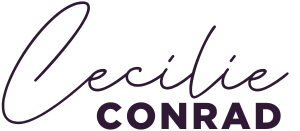
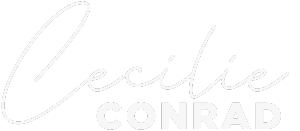
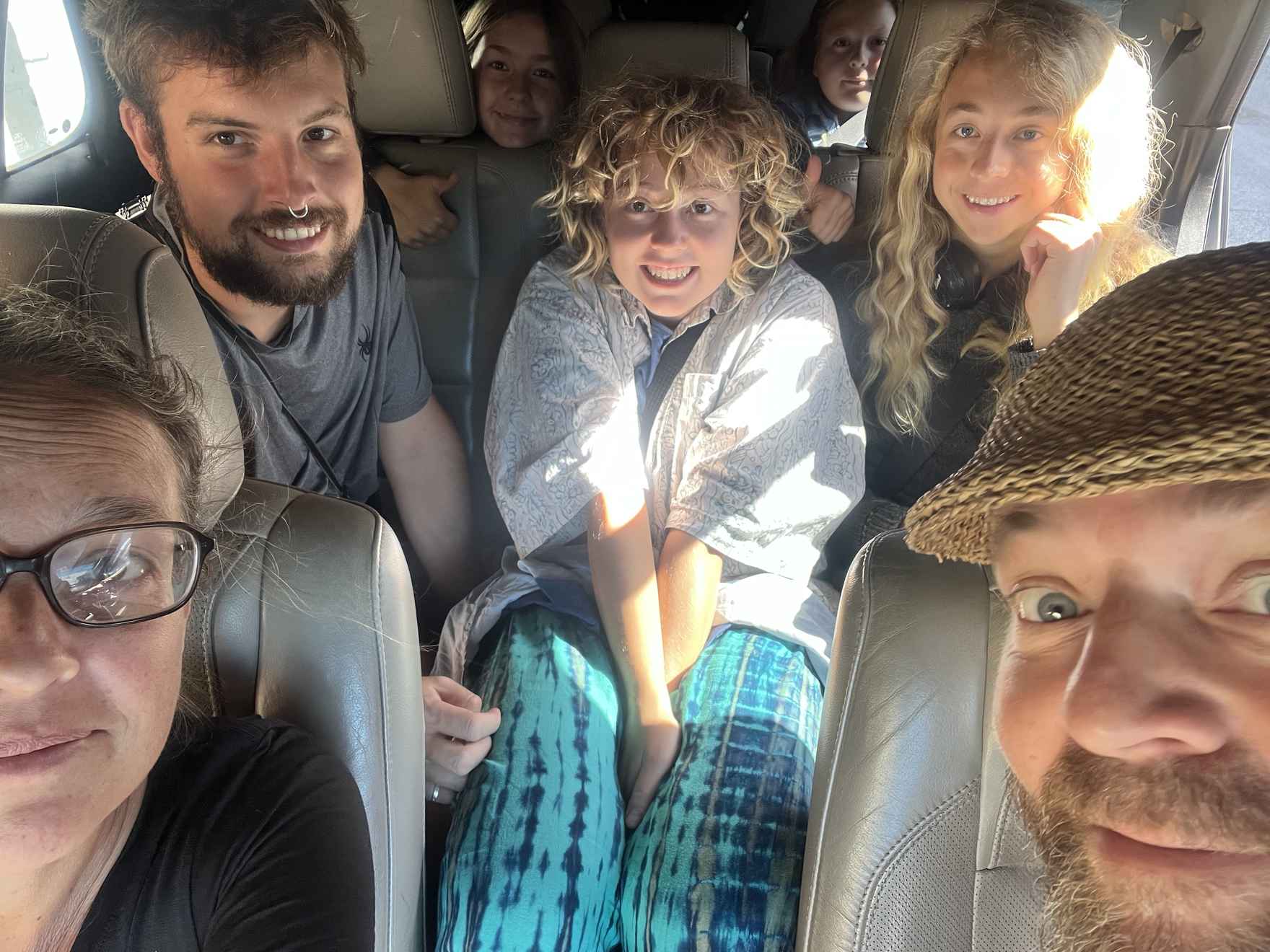
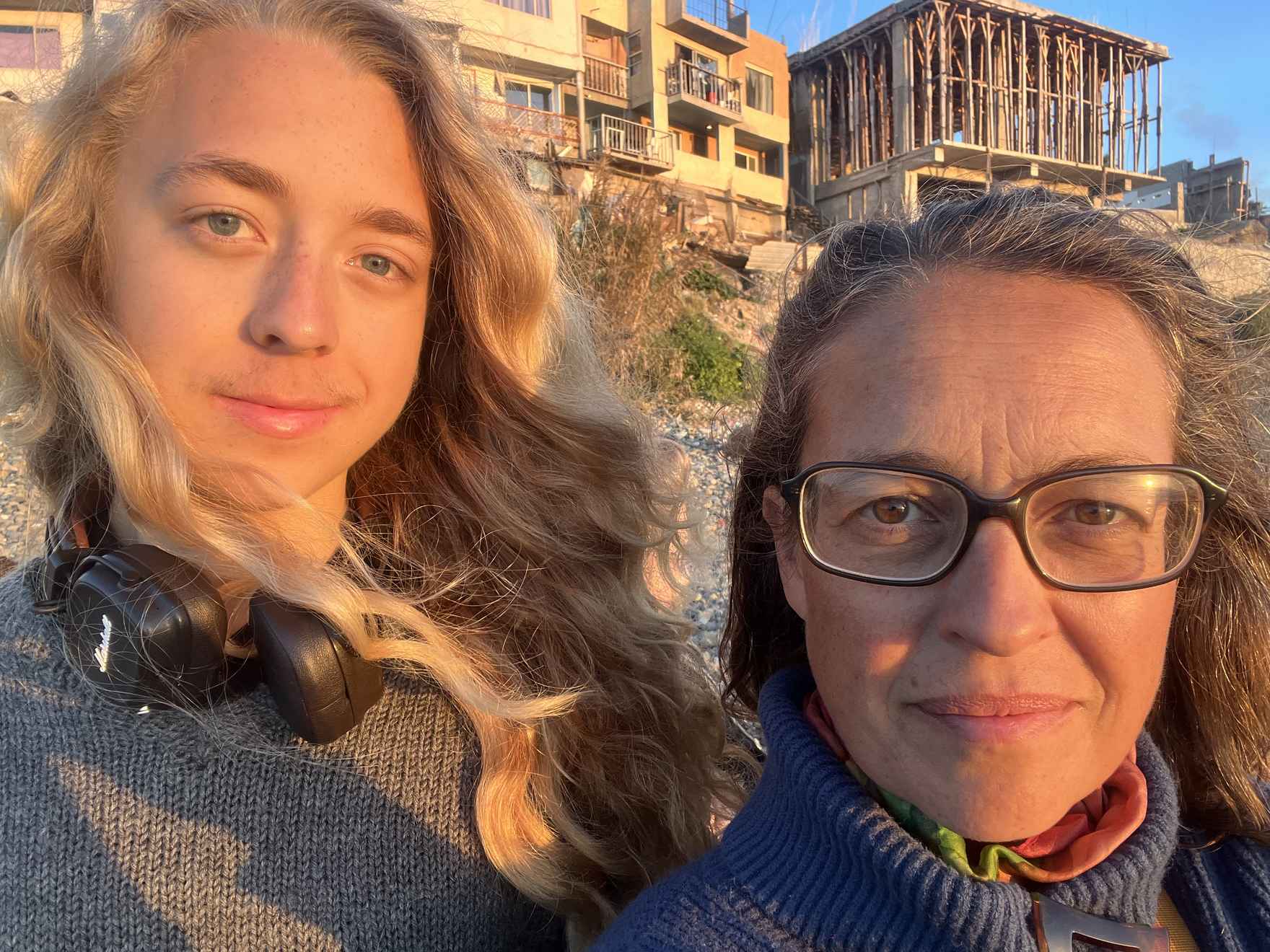
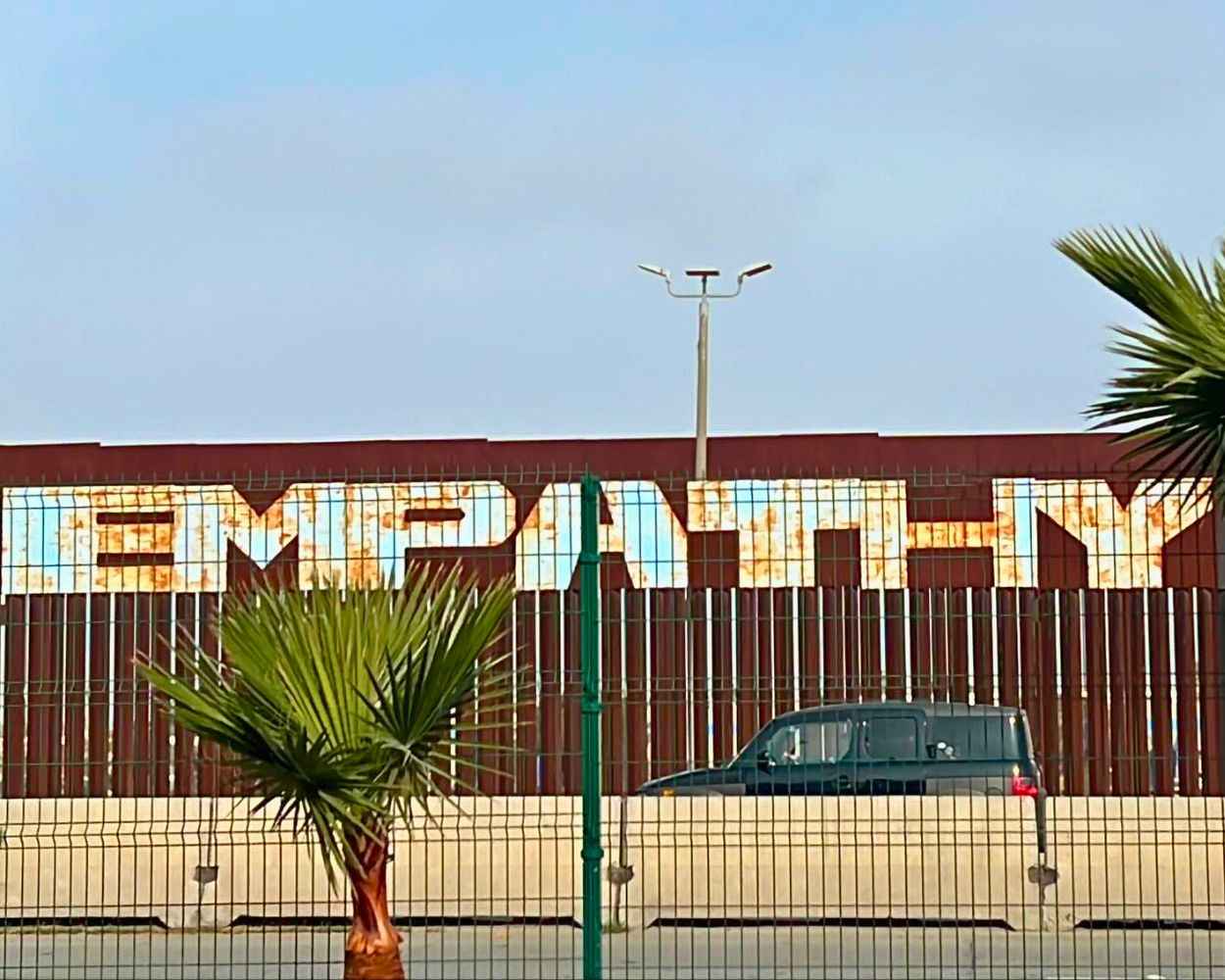


0 comments
Leave a comment